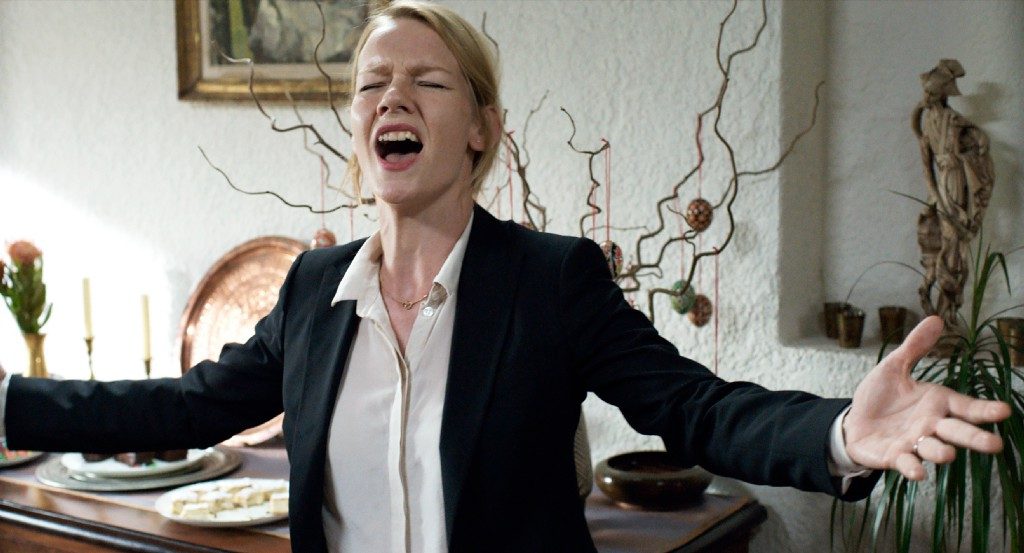Maren Ade‘s second feature, “Everyone Else,” won two Silver Bears at the 2009 Berlin Film Festival: the Grand Jury Prize and Best Actress for Birgit Minichmayr. The modern relationship drama was released in over 25 countries. Her first feature, “The Forest for the Trees,” won the Special Jury Award at the Sundance Film Festival in 2005. Ade also works as a producer for other filmmakers: In 2000, she founded the film production company Komplizen Film with producer Janine Jackowski.
“Toni Erdmann” will play at the 2016 Toronto International Film Festival on September 8.
W&H: Describe the film for us in your own words.
MA: “Toni Erdmann” is a story about a father and a daughter who try to renew their relationship.
W&H: What drew you to this story?
MA: The wish to tell something about family — about the assigned roles everybody plays in families, and about the wish to break out of that and to start from zero.
W&H: What do you want people to think about when they are leaving the theater?
MA: I try to make my films as open as possible, so [anything and] everything one might think after the movie ends is right.
W&H: What was the biggest challenge in making the film?
MA: To make it funny and sad at the same time. It was a lot of work for the actors and me to get it spontaneous and precise at the same time.
W&H: How did you get your film funded? Share some insights into how you got the film made.
MA: It’s a co-production between Germany and Austria and the film is made with TV money and funding from the two countries. So most of the money is public money.
W&H: What does it mean for you to have your film play at TIFF?
MA: My first film played there, which was a great opportunity, because I was recognized internationally for the first time. So it’s nice to come back with my third feature.
W&H: What’s the best advice you’ve received?
MA: The best advice for me came from watching films that were made with a lot of freedom and a radical approach by the director.
W&H: What advice do you have for other female directors?
MA: Consider trying to become your own producer.
W&H: Name your favorite woman-directed film.
W&H: “Wanda” by Barbara Loden.
W&H: What are the filmmaking opportunities for women in your country? Have you seen recent improvements? What do you think needs to be done see some significant change?
MA: In Germany there is a discussion about launching a woman-quota for the public money. I think it’s a good idea to try this out — with the hope that the quota becomes unnecessary in a few years.







